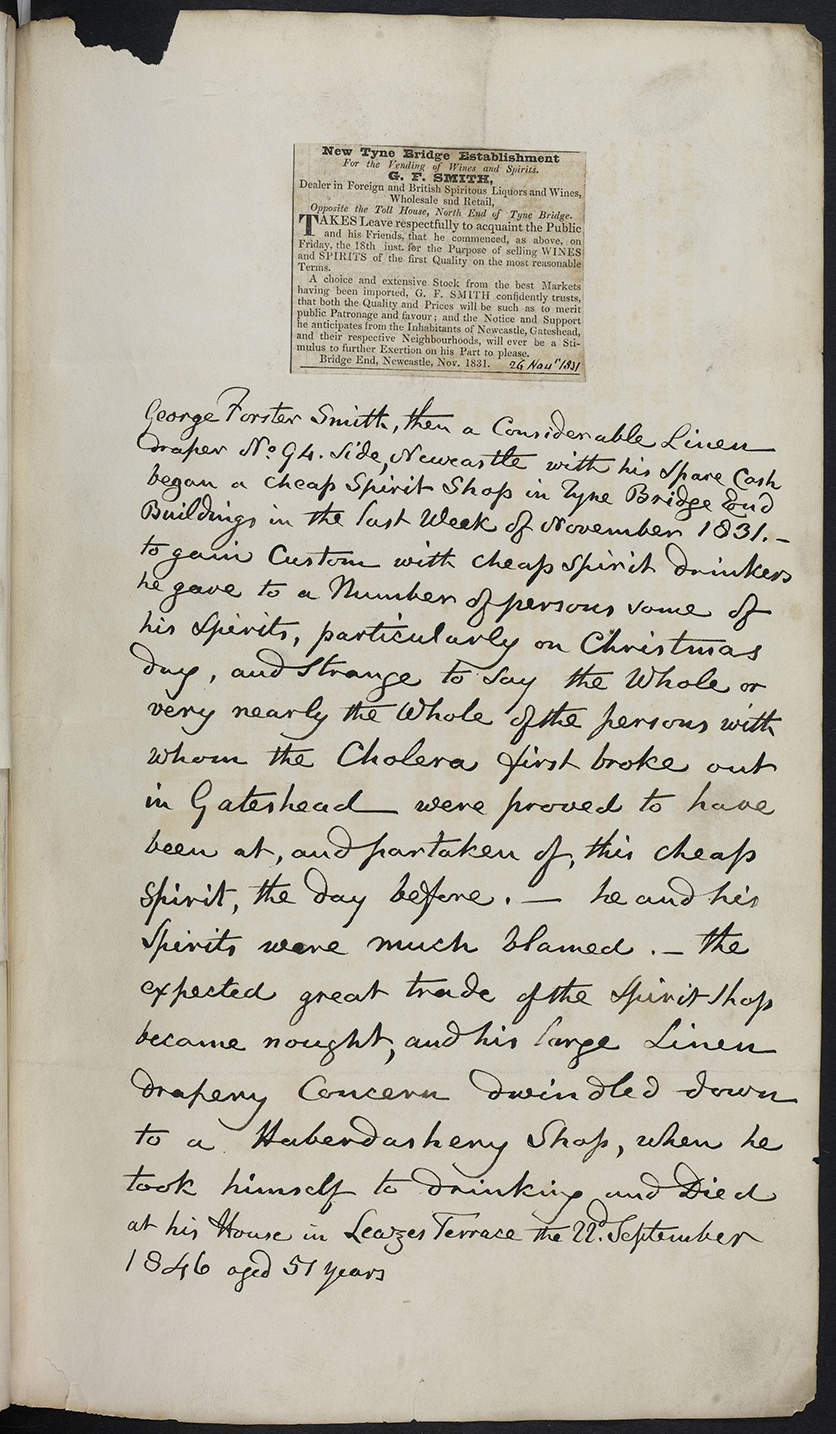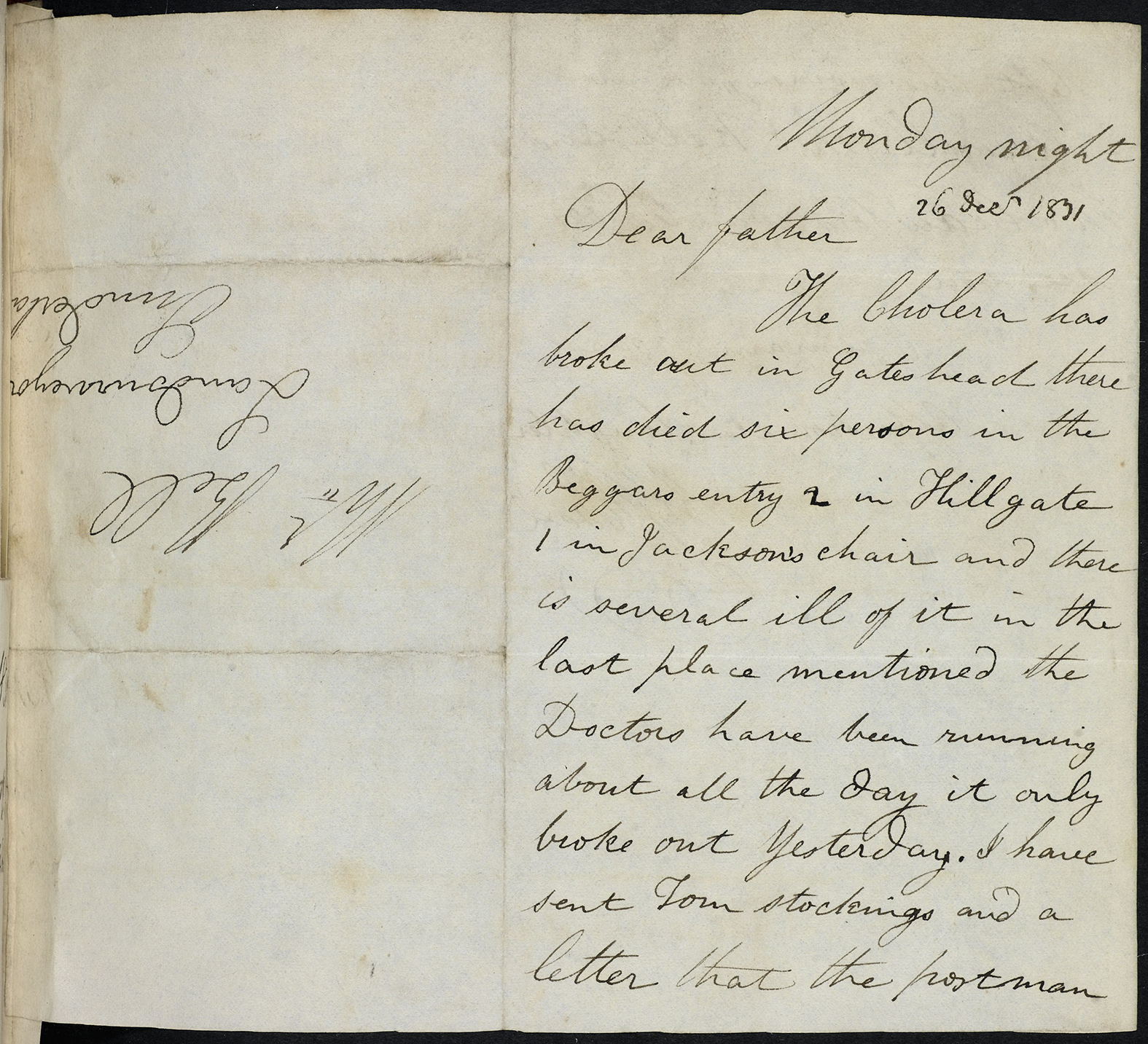#ChristmasCountdown
Door No. 19

Newspaper cutting and handwritten account of the Cholera outbreak, 1831 from ‘Collection relative to the cholera at Gateshead, in the county of Durham Vol I (Rare Books, RB 616.932 BEL)
This page from the Cholera scrapbook details circumstances around George Foster Smith, who sold some of his spirits to people on Christmas Day. It explains that nearly all of those that consumed the liquor from Smith’s establishment were those with whom Cholera first broke out in Gateshead. The Cholera outbreak occurred in Gateshead and lasted from 1831-2.
See another page from Cholera scrapbook Volume I, in Door No. 9 of the Special Collections Christmas Calendar.
Transcription reads;
George Foster Smith, then a considerable linen draper NoG(?)4. side, Newcastle with his spare cash began a cheap spirit shop in Tyne Bridge End Buildings in the last week of November 1831. – to gain custom with cheap spirit drinkers he gave to a number of persons some of his spirits, particularly on Christmas day, and strange to say the whole or very nearly the whole of the persons with whom the Cholera first broke out in Gateshead were proved to have been at, and partaken of this cheap spirit, the day before. – he and his spirits were much blamed. – the expected great trade of the spirit shop became nought, and his large linen drapery concern dwindled down to a Haberdashery shop, when he took himself drinking and died at his house in Leazes Terrace the 22. September 1846 aged 57 years
Find out more about our Cholera scrapbooks here.
The scrapbooks are part of the Rare Books Collections. Find out more about it here.


